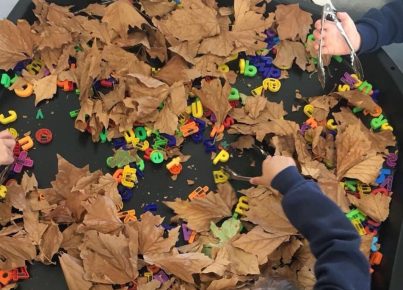Introduction:
Being a reflective early years practitioner involves taking time to critically evaluate and analyze one’s own teaching practices and policies to improve the quality of education. Being reflective is crucial for early years practitioners, as it helps enhance our understanding of children’s needs, development and learning processes. In this article, we’ll explore valuable strategies that can help you become a more transformative early years practitioner.
1.Self-evaluation:
To be a reflective practitioner, you must constantly evaluate your teaching methods and practices. Self-evaluation involves being honest with yourself about what is working well and what needs improvement. By regularly examining your practice, you can identify areas for change and development, leading to growth in your professional skills.
2.Seeking feedback:
Involve your colleagues, mentors and even the parents of your students in your reflection process. Seeking feedback can help you identify potential blind spots. Be open to constructive criticism that aims at enhancing the educational experience for your students.
3.Active listening:
Active listening involves fully engaging with children and colleagues when observing or discussing situations. Understanding others’ perspectives is key to reflection, as it can challenge our assumptions and prompt us to think about alternative approaches.
4.Collaborative inquiry:
Working together with other early years practitioners in developing, implementing and evaluating strategies fosters an environment where reflective practice can thrive. Collaborative inquiry facilitates shared learning, leading to improved outcomes for the children we serve.
5.Documenting learning experiences:
Regularly recording teaching practices provides snapshots of achievements, strengths, weaknesses and potential areas for development. This record is essential in reflection to identify patterns in our practice that may require further attention.
6.Engaging in professional development opportunities:
Participate in continuing education programs such as workshops, seminars and conferences related to early childhood education. Professional development enables you to stay informed about the latest trends in teaching methodologies while gaining insights from experts in the field.
7.Reflective conversations:
Sharing experiences with peers and discussing various perspectives can provide new insights into familiar situations. Reflective conversations are a valuable tool for growing as a practitioner, as they promote open-mindedness, active listening and a willingness to change course if necessary.
Conclusion:
Being a reflective early years practitioner is essential in ensuring that your teaching methods and strategies are effective in meeting the needs of your students. By embracing self-evaluation, seeking feedback, engaging in active listening, collaborating with others, documenting learning experiences and participating in professional development, you can reap the benefits of reflective practice. Ultimately, this will enable you to provide the best possible learning environment for the children in your care.





